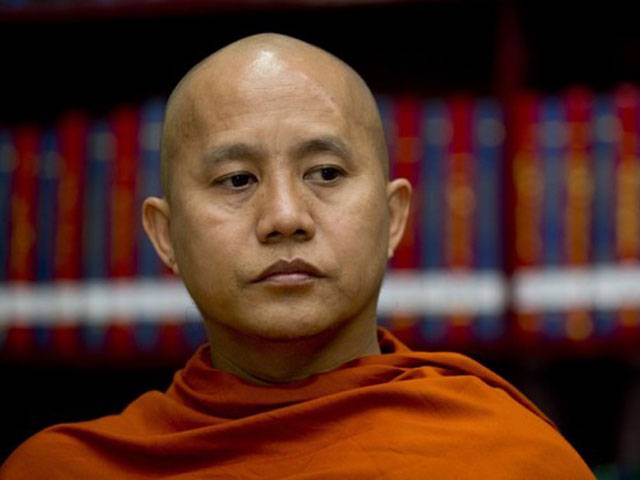WASHINGTON : Members of Myanmar’s Buddhist majority, including some of its much-respected monks, are increasingly persecuting the country’s long-suffering Muslim minority and adopting an ideology that encourages religious violence, according to US media reports from Taunggyi, the capital of the South East Asian country’s Shan state.
“It seems a far away from the Buddhism typically associated with stoic monks and the Lama – who has condemned the violence – and more akin to the sectarian extremism prevalent in troubled corners of the Middle East,” the Washington Post wrote. The violence has already left nearly 250 Burmese Muslim civilians dead, forced 150,000 from their homes and is getting worse.
“You can be full of kindness and love, but you cannot sleep next to a mad dog,” Ashin Wirathu, a spiritual leader of the movement and very popular figure in Myanmar, said of the country’s Muslims, whom he called “the enemy.” He told the New York Times, “I am proud to be called a radical Buddhist.”
Wirathu calls himself “the Burmese bin Laden” and was recently labeled on the cover of Time magazine as “the face of Burmese terror.” A prominent Burmese human rights activist, after a lifetime of fighting government oppression, now warns that Wirathu’s movement is promoting an ideology akin to neo-Nazism.
Already, the movement has expanded beyond this one self-styled radical Buddhist monk. It’s now expanding across Myanmar, according to the Times. The anti-Muslim sentiment has spread with alarming speed over just the last year, as Myanmar – which is finally opening up after years of military dictatorship – loosened its strict speech laws. It has prompted boycotts and sermons that can sound an awful lot like calls for violence against Muslims. Monasteries associated with the movement have enrolled 60,000 Burmese children into Sunday school programmes.
By far the worst attack so far was in late March in the central Myanmar city of Meiktila. Tellingly, the attack was not let by a single leader or religious figure but carried out by mobs of Buddhists, a worrying sign that Wirathu’s violent ideas may have taken hold in the city. A minor dispute at an outdoor jewelry stall between a Buddhist customer and a Muslim vendor escalated rapidly out of control. Buddhist rioters razed entire Muslim neighbourhoods, burned several civilians alive and killed up to 200 more Muslims until, after three long days in which the army was conspicuously absent, troops intervened to stop the killing.
Human Rights Watch, a New York-based watchdog, provided a set of before-and-after satellite images of one of the neighbourhoods attacked, where Buddhist mobs destroyed a staggering 442 Muslim homes.
Heightening the fear is that none of Burma’s leaders has stepped in to end the bloodshed. The military rulers, though they once jailed Wirathu, have held back, perhaps reluctant to risk the backlash at a time when they are willingly abandoning much of their power.
Aung San Suu Kyi, the longtime democracy activist who became an international cause as a political prisoner, has also failed to fully condemn the violence. This has been typically seen as a political choice, meant to avoid angering too many Myanmar voters — she intends to run for president — if she wants to maintain national support. As the Economist points out, many Burmese were angered when Suu Kyi criticized a draconian new law that forbids some Burmese Muslims from having more than two children.
Unchecked, though, Burma’s self-declared radical Buddhists may show no interest in ending their campaign against the country’s Muslim minority, the Post said.
Thursday, April 18, 2024
Myanmar’s monk proud to be called radical Buddhist

Jailed Myanmar leader Suu Kyi moved to house arrest
April 18, 2024
Jahangir Khan PSA Satellite Squash Series strats
April 18, 2024
Pakistan women face West Indies women in first ODI today
April 18, 2024
Asad, Amir reach PTLA Junior National Tennis semis
April 18, 2024
Rail Revival
April 17, 2024
Addressing Climate Change
April 17, 2024
Saudi Investment
April 17, 2024
Political Reconciliation
April 16, 2024
Pricing Pressures
April 16, 2024
Workforce inequality
April 17, 2024
New partnerships
April 17, 2024
Shikarpur crisis
April 17, 2024
Peace quest
April 17, 2024
Democratic harmony
April 16, 2024
ePaper - Nawaiwaqt
Advertisement
Nawaiwaqt Group | Copyright © 2024





